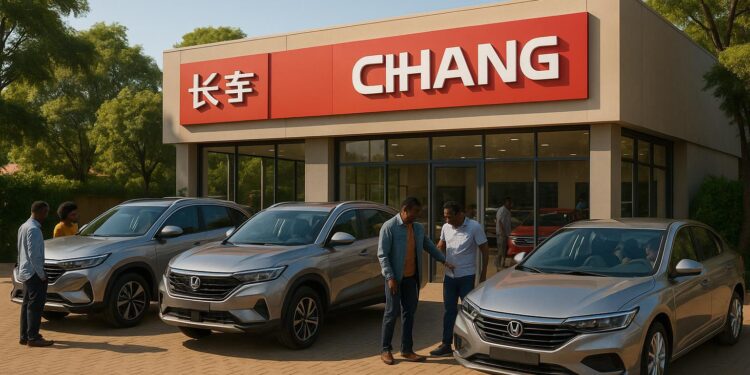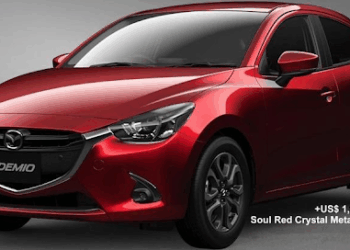Chinese automakers are reshaping Kenya’s car market with affordable vehicles, tailored designs, and local support systems. Brands like BYD, Foton, Chery, Geely, Great Wall Motor, and Haval are gaining ground by offering features suited to Kenya’s roads and economy. They’ve also introduced flexible financing and invested in service networks, making car ownership more accessible. However, concerns about long-term reliability, spare parts availability, and service quality remain.
Key Highlights:
- BYD: Focused on electric vehicles with extended warranties and genuine parts policies.
- Foton: Popular for budget-friendly light trucks and financing options for SMEs.
- Chery: Assembles EVs locally to cut costs and promote green mobility.
- Geely: Combines affordability with modern features and enhanced ground clearance.
- Great Wall Motor: Targets budget-conscious buyers with reliable, low-maintenance vehicles.
- Haval: Offers structured service plans and competitive warranties.
These brands challenge established players, offering more choices but requiring improved infrastructure for long-term success.
How Chinese EVs Are Shaping the Future of Kenya’s Auto Industry
1. BYD
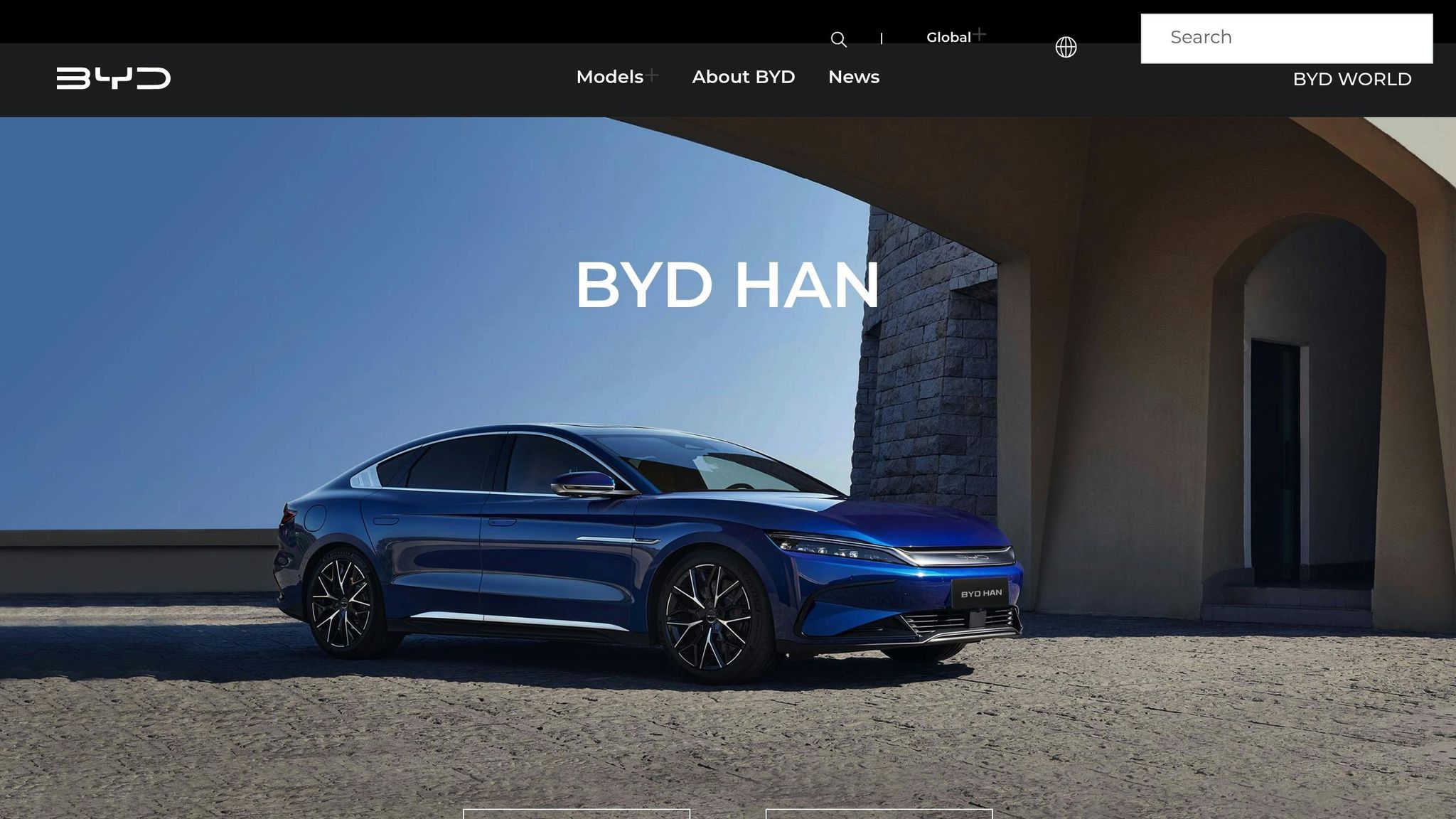
BYD is making a strong push in Kenya’s New Energy market by focusing on reliable after-sales support.
After-Sales Support
BYD Kenya provides an extensive warranty for its New Energy vehicles. The general vehicle warranty covers 6 years or 93,205 miles, whichever comes first. For key components like the power battery and drive unit, the warranty extends to 8 years or 93,205 miles, whichever comes first. The warranty period starts on the date listed on the invoice from an authorized BYD dealer.
This warranty reflects BYD’s dedication to ensuring a positive ownership experience over the long term.
Local Initiatives
To uphold vehicle performance and safety, BYD emphasizes the use of genuine spare parts for repairs and maintenance. The company warns that using non-genuine parts could lead to warranty voidance if they cause damage or performance issues. This policy underscores BYD’s focus on maintaining high standards for its vehicles.
2. Foton
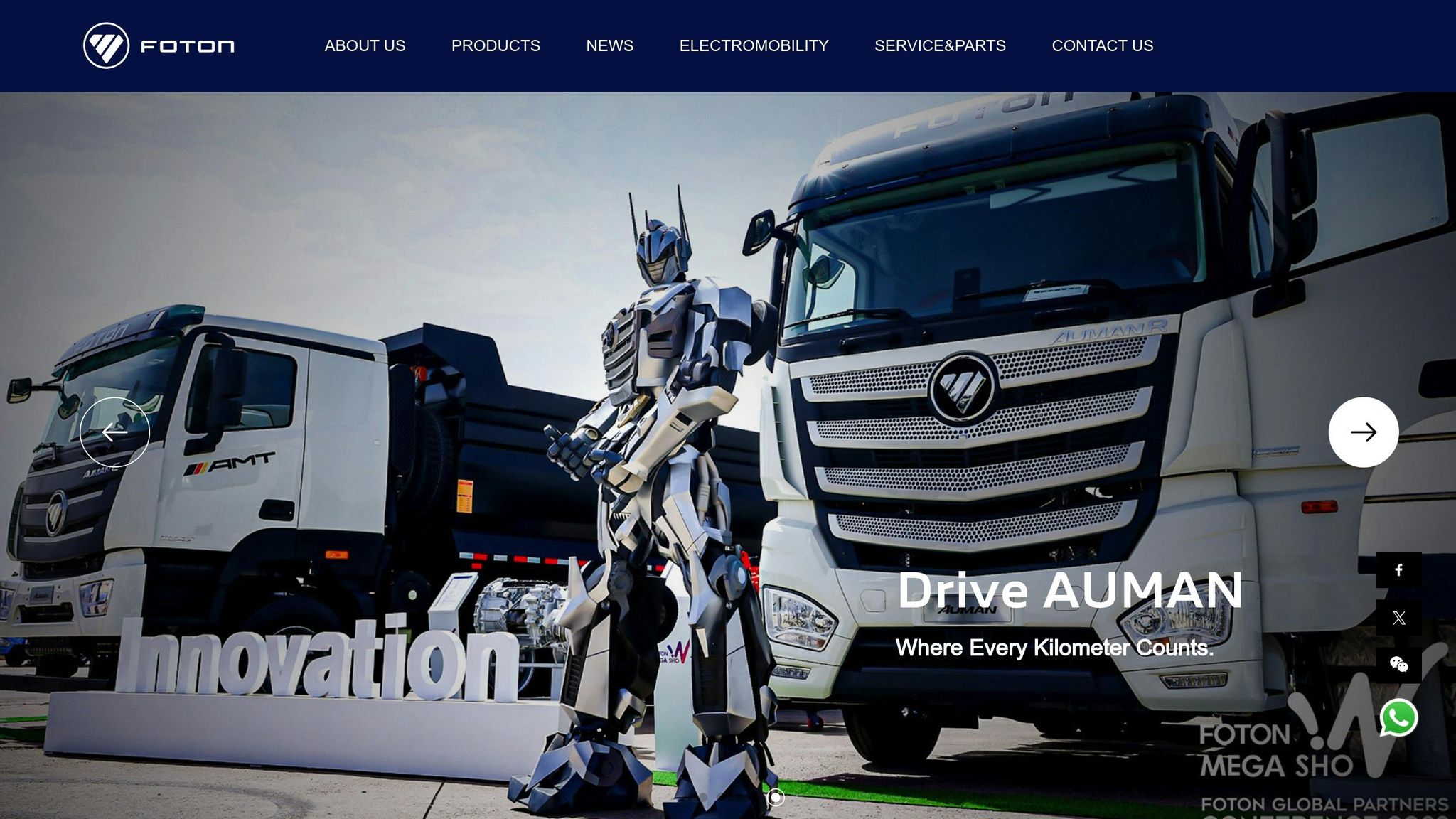
Foton has carved out a space in Kenya’s automotive market by catering to commercial vehicle buyers, particularly those seeking cost-effective transportation options. Their focus is mainly on light trucks and other commercial vehicles.
Affordability
Foton has become a go-to option for Kenyan businesses, offering dependable, budget-friendly light trucks and commercial vehicles tailored to meet the long-term needs of small and medium-sized enterprises (SMEs). These vehicles address critical transportation demands for SMEs, making them an appealing choice for business owners.
"Our goal is to scale up local production to meet the growing demand for reliable and cost-effective transportation solutions in Kenya."
- Gerald Simbo, Sales Manager at Foton East Africa
To make their vehicles more accessible, Foton collaborates with microfinance institutions and banks to offer flexible financing options. This approach has proven beneficial for many entrepreneurs:
"Without the flexible financing Foton offered, I wouldn’t have been able to afford this truck. It allowed me to pay [off the vehicle] in instalments, which kept my business afloat as I worked to expand my customer base."
- Isaack Mutua, Foton truck owner
Foton’s strategy aligns with Kenya’s industrialization goals, as affordable transport solutions are seen as vital for boosting the economy and empowering small businesses. Beyond competitive pricing, Foton also supports its customers with a strong after-sales network.
After-Sales Support
Foton is working to expand its service infrastructure across Kenya. This includes increasing the number of service centers and spare parts outlets to ensure customers receive reliable support whenever needed.
The company also operates a service training center in Kenya, which is part of a global network of 12 facilities. This center provides in-depth training in service management and technical skills for new service stations and suppliers, ensuring consistent quality across their network.
Foton’s global "Total Care" service system reflects its dedication to customer satisfaction. This system offers a comprehensive range of support, covering everything from products and accessories to training and technical assistance, all delivered through an extensive and professional network.
3. Chery

Chery has taken a smart approach in Kenya by locally assembling its flagship Omoda E5 EV. By doing so, the company avoids the hefty costs tied to importing fully built vehicles, making its electric cars more budget-friendly for Kenyan buyers. This move not only helps lower prices but also aligns with efforts to encourage the adoption of electric vehicles in the country. Through local production, Chery showcases its dedication to providing affordable, dependable mobility options while supporting Kenya’s push toward a greener future. This strategy highlights how Chinese automakers are adapting their offerings to meet the specific needs of the Kenyan market.
4. Geely

Geely has made its mark in Kenya by blending cutting-edge technology with practical solutions that cater to the needs of local drivers. The brand’s strategy focuses on offering vehicles that strike a balance between affordability and modern features, making them a strong contender in the mid-range segment.
Through partnerships with local dealerships, Geely has built a solid presence in Kenya’s automotive market. Their lineup includes sedans and SUVs outfitted with features like advanced safety systems, fuel-efficient engines, and connectivity options – appealing to Kenya’s expanding middle class.
Understanding the unique challenges of Kenya’s roads, Geely has tailored its vehicles with higher ground clearance to handle diverse terrains. Additionally, the company has invested in a network of service centers across major cities, ensuring reliable maintenance and support. By offering competitive warranty packages and training local technicians, Geely ensures that customers receive consistent, high-quality service.
Beyond just selling cars, Geely actively engages with the Kenyan market. The company participates in automotive exhibitions and collaborates with financial institutions to provide accessible financing options. This commitment highlights a broader effort by Chinese automakers to build lasting relationships with Kenyan consumers, focusing on long-term trust and value rather than just vehicle imports.
sbb-itb-e5ed0ed
5. Great Wall Motor

Great Wall Motor (GWM) has carved out a space for itself in Kenya by offering vehicles that balance affordability with reliability, perfectly suited to the country’s economic realities. By focusing on budget-conscious buyers, GWM has positioned itself as a practical choice for those seeking dependable performance without breaking the bank.
Affordable Options for Buyers
GWM provides a range of vehicles at prices that cater to Kenya’s economic challenges, where rising living costs and a depreciating shilling often push buyers toward used cars. To counter this trend, GWM offers new vehicles, including budget-friendly pickups, for both personal and commercial use.
Take the Haval H5 SUV, for instance. It’s priced to compete directly with popular Japanese SUVs that dominate the Kenyan market, making it an attractive option for buyers looking for quality without the hefty price tag. For those open to importing, the savings are even more appealing – importing a Haval H5 can cut costs by as much as KES 500,000 by bypassing dealership and showroom fees.
But GWM doesn’t stop at competitive price points. The company also focuses on keeping ownership costs low, ensuring buyers get long-term value.
Commitment to After-Sales Support
Owning a car doesn’t end at the point of purchase, and GWM recognizes this. The Haval H5, for example, is known for being low-maintenance in Kenya. This is largely due to reasonably priced spare parts and the brand’s growing network of local service centers, which make upkeep both convenient and affordable.
6. Haval
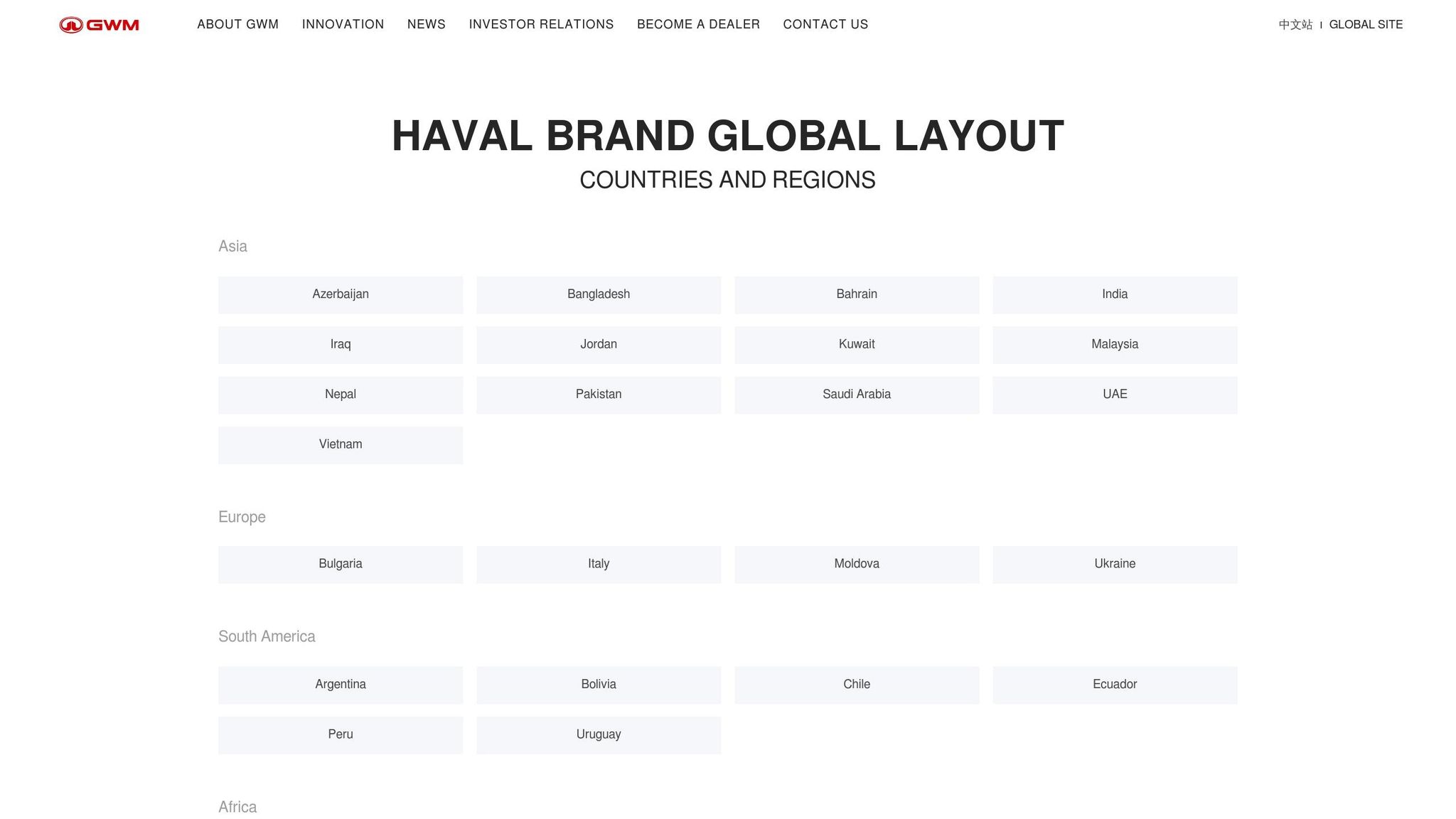
Haval, a brand under Great Wall Motor, is making strides in Kenya with a strong focus on after-sales support, provided through Crown Motors Group Kenya (GWM Kenya).
After-Sales Support
Haval ensures its customers in Kenya have access to essential after-sales services, such as routine vehicle servicing, warranty coverage, and structured service plans. To make things convenient, customers can book service appointments online through the GWM Kenya website. Genuine parts and skilled technicians are used to maintain vehicles, ensuring warranties remain intact.
In April 2024, Crown Motors Group Kenya introduced an enticing offer for new Haval buyers: a 2-year/50,000 km (about 31,000 miles) free service plan, paired with a 3-year/100,000 km (about 62,000 miles) warranty. These initiatives emphasize Haval’s dedication to dependable service and customer satisfaction for drivers in Kenya.
Advantages and Disadvantages
Chinese automakers are making waves in Kenya’s automotive market by offering vehicles packed with modern features at prices that appeal to budget-conscious buyers. This approach has opened up new options for consumers seeking affordability without sacrificing quality.
However, challenges persist. Many of these brands are still in the process of establishing reliable service networks and ensuring a steady supply of spare parts. This can be particularly problematic in areas where support infrastructure is limited, leaving some customers concerned about long-term maintenance.
The road ahead for these automakers will require a delicate balance – introducing cutting-edge innovations while building strong, dependable local support systems.
Conclusion
Chinese automakers are reshaping Kenya’s automotive landscape in notable ways. Brands like BYD, Foton, Chery, Geely, Great Wall Motor, and Haval have brought their distinct strengths to the market, offering buyers a variety of options.
By combining modern features with competitive pricing, these companies have made quality vehicles more accessible to Kenyan consumers. This shift has not only expanded choices but also changed the dynamics of the industry.
The ripple effects go beyond consumer benefits. The presence of Chinese automakers has pushed competitors to lower prices and improve features, creating better overall value for car buyers. However, the long-term success of these brands depends on their ability to navigate key challenges. Building strong service networks, ensuring a steady supply of spare parts, and maintaining consistent quality will be critical for staying competitive in Kenya’s market.
This growing influence of Chinese automakers is more than just a shift in car ownership trends – it marks a broader transformation in Kenya’s automotive industry. By challenging established players and offering new opportunities for consumers, these brands are driving significant change in the market.
FAQs
How are Chinese automakers attracting Kenyan car buyers?
Chinese automakers are employing targeted strategies to win over Kenyan buyers. By assembling vehicles locally, they’re cutting costs and tapping into government incentives, which helps make their cars more budget-friendly. On top of that, they’re rolling out more electric and hybrid models to align with Kenya’s growing focus on green energy – a move that appeals to eco-conscious consumers.
To cement their foothold in the market, these companies are also prioritizing after-sales services. From ensuring easy access to maintenance and spare parts to collaborating with local businesses, they’re working to enhance customer satisfaction and foster trust in their brands throughout Kenya.
What are Chinese automakers doing to ensure spare parts and quality service are available in Kenya?
Chinese automakers are making noticeable efforts to tackle concerns about spare parts availability and service quality in Kenya. To address these issues, they are setting up local support networks, including official distribution centers for spare parts and teaming up with aftermarket providers. This approach ensures that buyers have easier access to the parts they need.
Beyond that, many Chinese brands are working closely with local businesses and launching training programs for technicians. These initiatives aim to improve after-sales service, giving Kenyan consumers greater peace of mind. By focusing on reliability and convenience, these automakers are gradually earning the trust of car owners in the region.
How could the growing presence of Chinese automakers affect Kenya’s automotive market and economy?
The increasing footprint of Chinese automakers in Kenya is expected to shake up the automotive market. With more competition, vehicles could become more affordable, and Kenyan buyers may gain access to a broader range of electric and hybrid models. This shift might not only make eco-friendly transportation more accessible but also diversify options for consumers.
From an economic perspective, investments by these automakers have the potential to generate jobs and stimulate local manufacturing. However, this growth might also create hurdles for existing local brands and dealerships, potentially altering Kenya’s traditional automotive industry.
Related Blog Posts
- Top 5 Automotive Trade Fairs in Kenya 2025
- Car prices in Nairobi 2025
- Kenya opens East Africa’s first EV battery lab in Nairobi
- Volkswagen restarts local assembly operations in Thika

